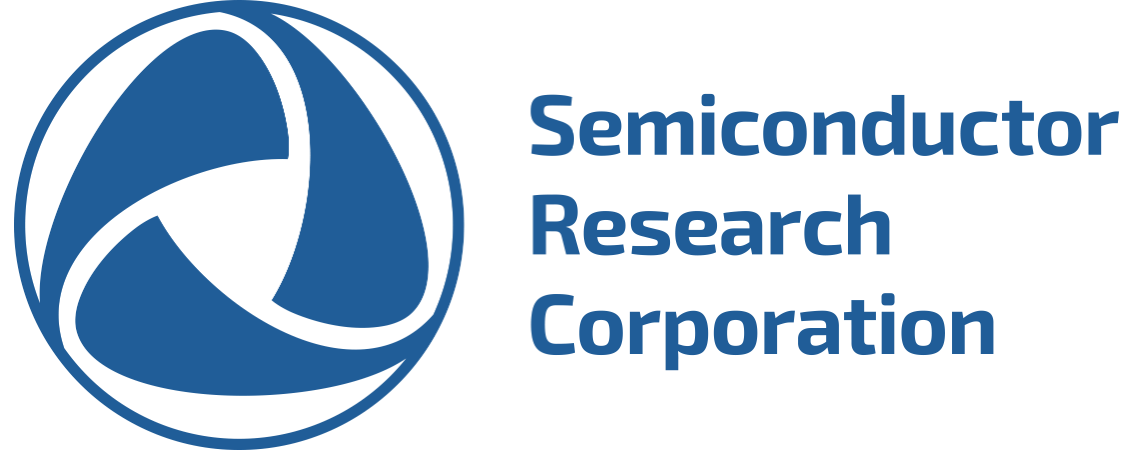Global Research Collaboration
-
Global Research Collaboration harnesses research from the world's top universities and converts it into significant competitive advantage for SRC member companies. Industry-driven and pre-competitive, this research focuses on the next breakthrough in semiconductor technology. GRC has invested more than a billion dollars and worked with several thousand students in hundreds of universities worldwide—not only developing essential technology, but creating the future leaders and innovators in the industry.
» More
Joint University Microelectronics Program 2.0
-
JUMP 2.0, a consortium of industrial participants in cooperation with the Defense Advanced Research Projects Agency, seeks to fund large, multi-disciplinary academic research centers from U.S. universities in selected areas of principal interest
» More
Joint University Microelectronics Program
-
JUMP, a Research Program of the NST Project, is a collaborative network of research centers sponsored by U.S. industry members and DARPA. Its mission is to enable the continued pace of growth of the microelectronics industry with discoveries which release the evolutionary constraints of traditional semiconductor technology development. JUMP research, guided by the university center directors, tackles fundamental physical problems and forges a nationwide effort to keep the United States and its technology firms at the forefront of the global microelectronics revolution.
» More
Nanoelectronic Computing Research
-
nCORE, a Research Program of the NST Project, funds collaborative university research in the U.S. to develop key technologies to enable novel computing and storage paradigms with long-term (10-20 years) impact on the semiconductor, electronics, computing, and defense industries. It is driven by fundamental research on novel materials and devices with the potential to achieve significantly improved efficiency, enhanced performance, and new functionalities, beyond the capability of conventional CMOS technologies. The funded research will explore and characterize small integrated systems that can be benchmarked, modeled, and robustly manufactured for future semiconductor applications. The nCORE program is built upon the learning from the Nanoelectronics Research Initiative (NRI) and funded through industry-government collaboration. The nCORE program coordinates with JUMP with complementary research scope.
» More
Undergraduate Research Program
-
Undergraduate Research Program (URP) is an academic year-long program which encourages participation from student candidates that are U.S. citizens and diverse in gender and background. The program combines a structured undergraduate research experience with industry mentorship. The program design increases retention of students interested in majors relevant to the semiconductor industry. When these students graduate, they are better prepared for a full-time opportunity or to progress on to graduate school. Undergraduate Research Program creates opportunities for URP members to network with and mentor URP students. Of particular emphasis is the annual recruiting event, hosted by SRC, to match member company job opportunities with URP students.
» More
Special Research Programs
-
New SRC initiatives currently featuring Supply Chain AI Realized Future and the India Research Program
» More
Nanoelectronics Research Initiative
-
Nanoelectronics Research Initiative is a consortium of companies in the Semiconductor Industry Association seeking to find a device that can scale computer technology beyond CMOS (Complementary Metal Oxide Semiconductor). This university-based research, cooperatively funded by industry and state governments, is looking toward nanoelectronics in the year 2020—further out than anyone else. With a goal of discovering the next switch—a new mechanism beyond a better transistor, NRI engages the most talented students to become the innovators and leaders of tomorrow’s technology industry.
» More
STARnet Research
-
STARnet is a collaborative network of research centers sponsored by U.S. industry members and DARPA. Its mission is to enable the continued pace of growth of the microelectronics industry with discoveries which release the evolutionary constraints of traditional semiconductor technology development. STARnet research, guided by the university center directors, tackles fundamental physical problems and forges a nationwide effort to keep the United States and its technology firms at the forefront of the global microelectronics revolution.
» More
Automotive Research
-
The transformation of automobiles into safe, dependable, autonomous vehicles has already started with the increasing availability and capabilities of advanced driver-assistance systems today. The Auto research program attempts to identify and define the technology required to enable the revolutionary transition from driver assistance to fully autonomous vehicles. In particular autonomous vehicles need to be better than their human counterparts in perceiving and understanding their environment, making the appropriate decisions, as well as, remaining safe and dependable in all driving conditions. To make this dream a reality, this program targets orders of magnitude improvements in perception, environmental learning, dependability, safety, power and cost.
» More
Focus Center Research Program (Legacy)
-
The Focus Center Research Program was a cooperative multi-university program sponsored by U.S. industry members and the federal government. FCRP Phase V ended in early 2013. Founded in order to maintain the historic productivity growth curve of semiconductor technology, FCRP engaged scores of universities and hundreds of faculty and students. Phase VI is underway as STARnet (see above).
» More


